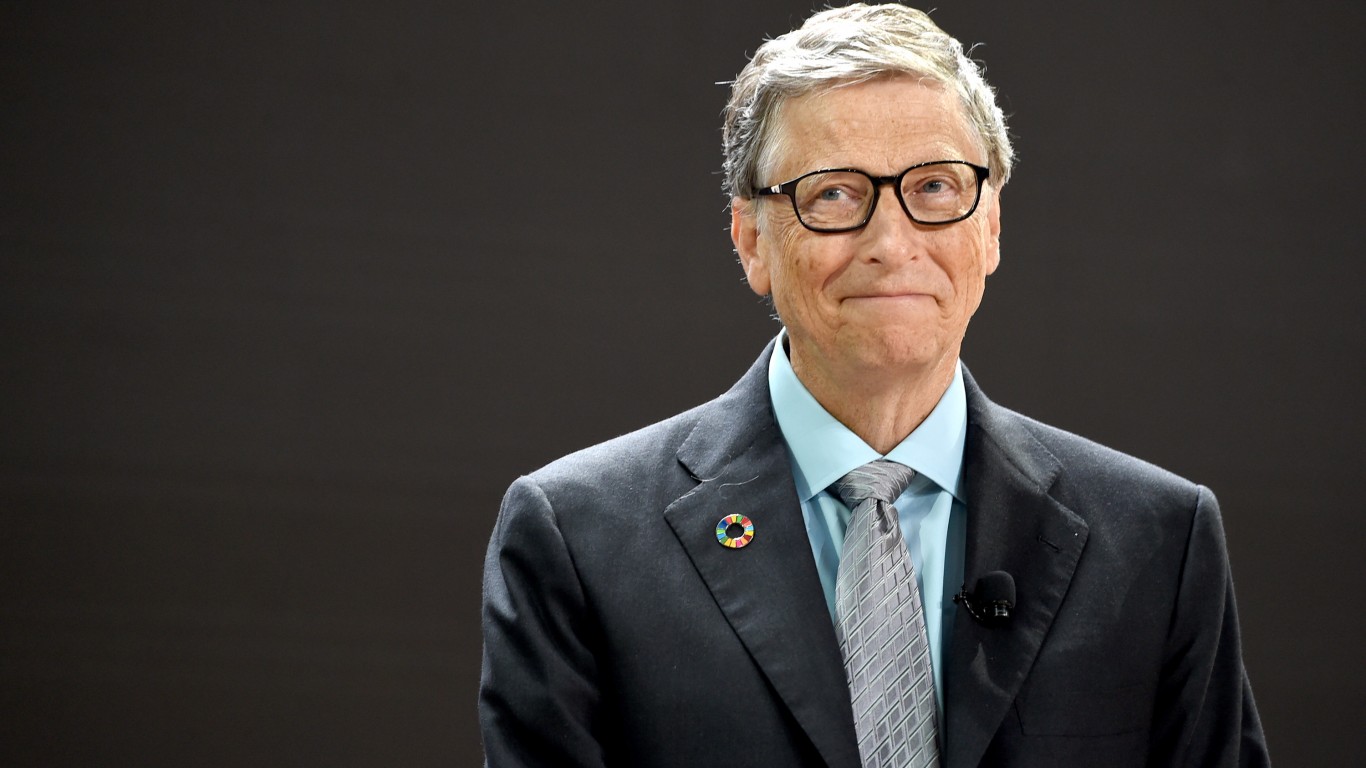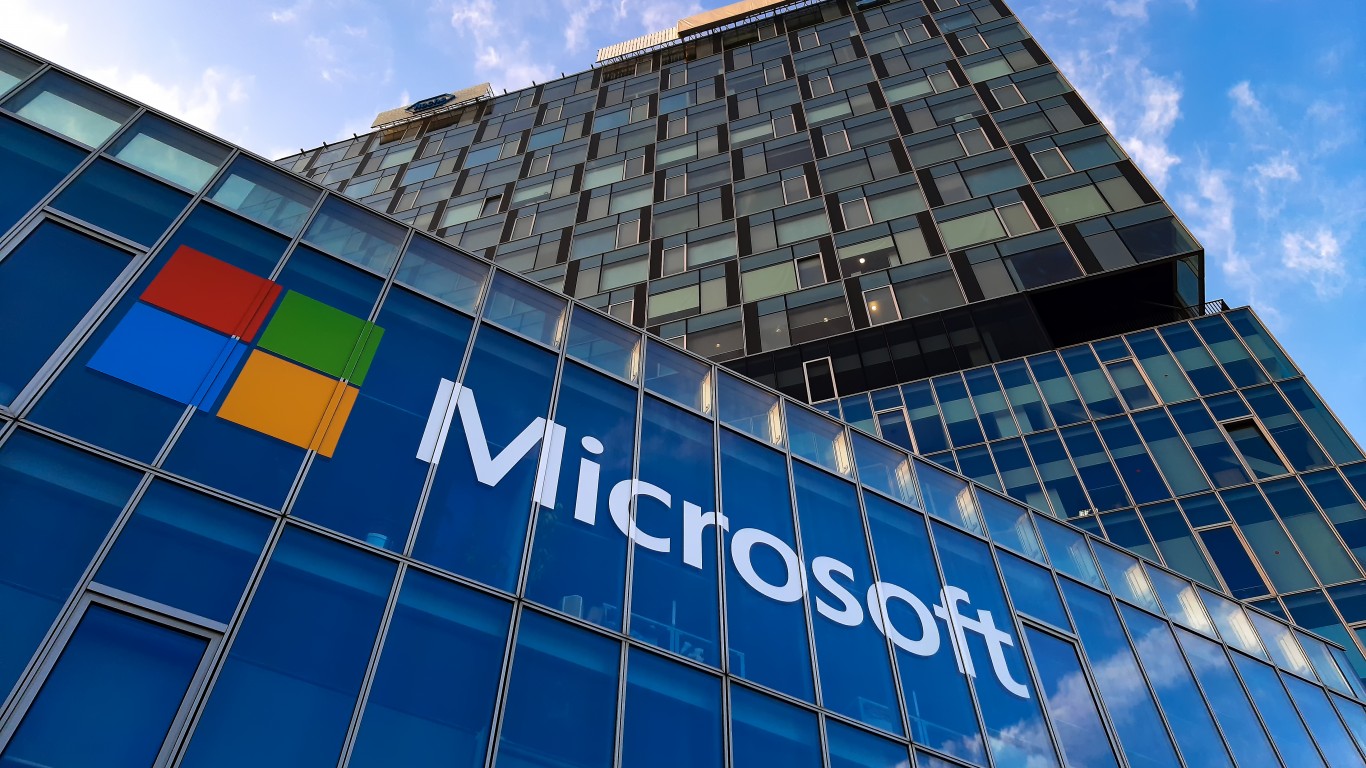
The Bill & Melinda Gates Foundation is one of the world’s biggest philanthropic organizations. Once the world’s richest man, Bill Gates has fallen to seventh on the list with a net worth of $135.7 billion. Yet the tech tycoon has promised to donate most of his wealth to the Foundation, as has his friend and fellow billionaire, Warren Buffett.
The Foundation had $77.1 billion in assets at the end of 2023 and it uses those vast resources to target health and poverty issues around the world. It was one of the biggest drivers for distributing Covid vaccines globally and it maintains a portfolio of stocks targeting biotechnology. One of the Foundation’s largest holdings is BioNTech (NASDAQ:BNTX), which, of course, was one of the developers of vaccines during the pandemic in partnership with Pfizer (NYSE:PFE). The Foundation’s portfolio had a value of more than $40 billion as of last month.
Yet the Foundation also has a trust that goes by the same name. Its purpose is to manage the endowment’s assets and its portfolio looks very different than its parent. Where the Foundation has just six positions (valuable though they are), the Bill & Melinda Gates Foundation Trust owns 24 different stocks.
Although the Trust seems to be more diverse, 70% of its $47.7 billion in assets under management is concentrated in just the three stocks listed below.
Key Points About This Article:
- The Bill & Melinda Gates Foundation is the largest philanthropic organization globally, but has a separate trust set up to manage the endowment’s investments.
- The Trust’s portfolio is very concentrated with just three stocks accounting for 70% of the total and the top four holdings represent over 83% of the total assets.
- If you’re looking for some stocks with huge potential, make sure to grab a free copy of our brand-new “The Next NVIDIA” report. It features a software stock we’re confident has 10X potential.
Microsoft (MSFT)

Probably of no surprise to anyone is that Microsoft (NASDAQ:MSFT) is the Trust’s biggest holding. It owns 34.9 million valued at $15.6 billion, or 32.7% of the portfolio’s total. That’s down slightly from a year ago when the Trust owned 39.3 million shares.
Gates himself has dramatically sold off his personal holdings of the tech giant. Since he left Microsoft, Gates has diversified his stock portfolio and today he holds only 1.4% of its shares. That’s still incredibly lucrative as it’s worth more than $40 billion. Percentages can be deceiving when you’re dealing with the uber-wealthy.
Microsoft is also a very different company than when Gates ran the place. It is now a premier artificial intelligence stock that has integrated the technology throughout its suite of products and services. AI has become a primary growth lever for its Azure cloud service. Although it is the third-largest platform, it has quickly become the fastest-growing one.
Berkshire Hathaway (BRK-B)

Also not a surprise is that Berkshire Hathaway (NYSE:BRK-A)(NYSE:BRK-B) is the second biggest position, considering his close association and partnership with Buffett. But it is not the pricey Class A shares that go for almost $690,000 per share each that the Trust owns. Rather it is the more affordable Class B stock that trades at just $460 a share.
The Trust owns 24.6 million shares of Berkshire, valued at $10 billion, which is good enough for 21% share of the portfolio’s total.
Gates was a buyer of Berkshire stock in the second quarter, acquiring 7.3 million shares. He wasn’t alone either, as Buffett himself was buying up the stock. Berkshire is the only stock Buffett has bought every single quarter for the past six years. Now, it’s not a traditional stock purchase, but rather share repurchases.
In July 2017, Berkshire’s board of directors changed the rules to allow Buffett and the late Charlie Munger to buy shares if the stock was trading below its intrinsic value. So long as Berkshire holds at least $30 billion worth of cash, equivalents, and Treasury bills, Buffett is free to buy the stock. Berkshire’s cash position totals $277 billion.
Waste Management (WM)

The third-biggest holding in the Bill & Melinda Gates Foundation Trust’s portfolio is trash hauler Waste Management (NYSE:WM). It owns 35.2 million shares valued at $7.5 billion, or 15.8% of the total.
Waste Management is the country’s largest garbage collector. It is vertically integrated, too, collecting trash for over 21 million North American customers while also operating hundreds of landfills, transfer centers, and recycling centers.
The garbage hauler generated $20.4 billion in revenue last year and adjusted profits of $2.5 billion. Through the first six months of 2024, revenue is up 5.5% while profits are 21% higher. In the second quarter it hit operating margins of 30% for the first time ever.
Like every other holding in the portfolio other than Microsoft and Berkshire Hathaway, Gates didn’t buy any shares of Waste Management. The other holdings in the Trust’s portfolio besides Canadian National Railway (NYSE:CNI) (13.6% of the total) are essentially negligible positions.
Is Your Money Earning the Best Possible Rate? (Sponsor)
Let’s face it: If your money is just sitting in a checking account, you’re losing value every single day. With most checking accounts offering little to no interest, the cash you worked so hard to save is gradually being eroded by inflation.
However, by moving that money into a high-yield savings account, you can put your cash to work, growing steadily with little to no effort on your part. In just a few clicks, you can set up a high-yield savings account and start earning interest immediately.
There are plenty of reputable banks and online platforms that offer competitive rates, and many of them come with zero fees and no minimum balance requirements. Click here to see if you’re earning the best possible rate on your money!
Thank you for reading! Have some feedback for us?
Contact the 24/7 Wall St. editorial team.



